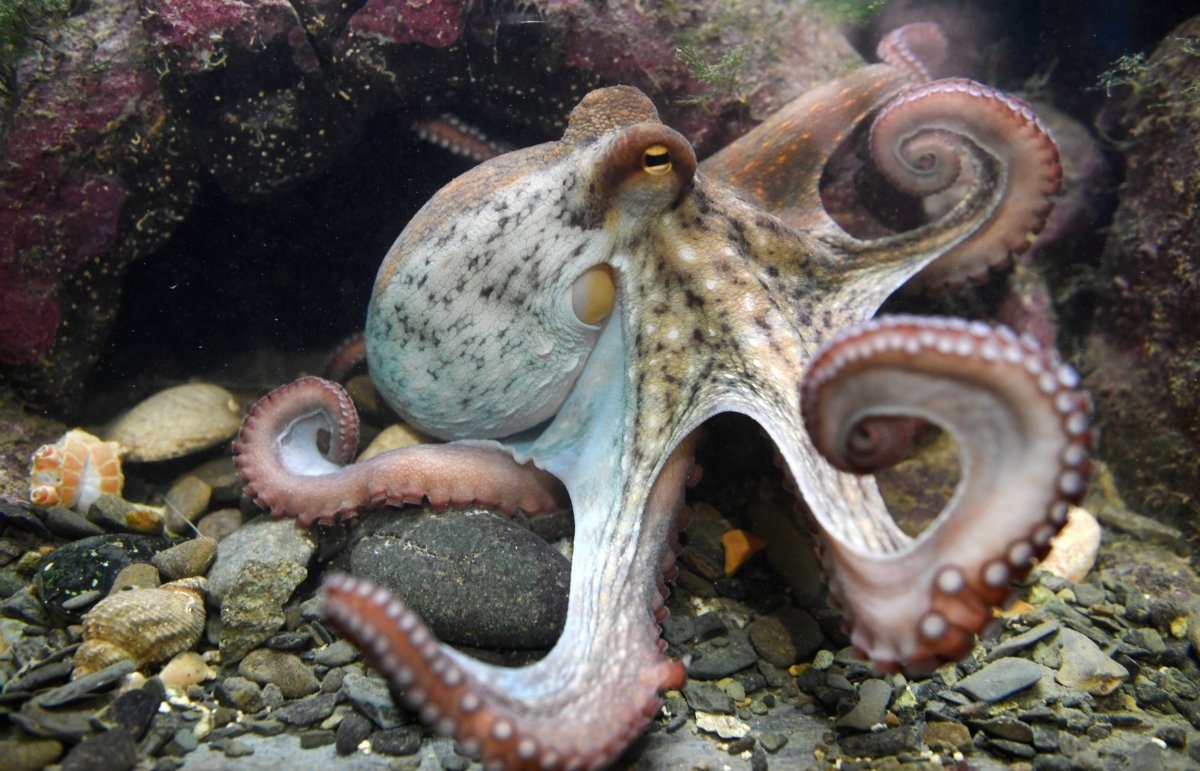Octopuses are really, really weird. Masters of disguise, they camouflage the skin on their flailing, eight-arm bodies and dive hundreds of feet below the surface of the sea. The intelligent creatures have even been known to predict the odd sports result.
Now, a group of 33 scientists from respected institutions around the world have suggested these bizarre creatures descend from organic alien material. Their research, published in the journal Progress in Biophysics and Molecular Biology, ties the "remarkable" rise of octopuses and their cephalopod cousins to the theory of panspermia.
Panspermia is a hotly debated concept. Various versions suggest microbes, viruses and even tiny life forms like the tardigrade might travel dormant from space rock to space rock via collisions, eventually making their way to new planets. On a habitable planet like our own, they might wake up and thrive.
Related: 'Alien ants' are invading the U.S. through global trade
Mass extinction events have killed vast numbers of species throughout history. One of these events took place about 544 million years ago. A few million years later, the planet began to see an explosion in critters now preserved in the fossil record.

"It takes little imagination to consider that the pre-Cambrian mass extinction event(s) was correlated with the impact of a giant life-bearing comet (or comets), and the subsequent seeding of Earth with new cosmic-derived cellular organisms and viral genes," the authors wrote.
Related: New tardigrade discovered: Mystery eight-legged microanimal found lurking in parking lot
In the case of octopuses, the authors think cryopreserved eggs could have hitched a ride to Earth on icy bolides. "Indeed," they wrote, "This principle applies to the sudden appearance in the fossil record of pretty well all major life forms." Tiny multicellular critters in the form of "eggs, embryos and seeds" might have sprung to life on Earth after a voyage through space.
It's a fun idea, but the paper is one of conjecture, not original research. It is a literature review largely referencing the authors' own works. In fact, even they acknowledge the work might come off as "fanciful."
Outside experts are unconvinced by the findings. Avi Loeb, the Frank B. Baird Jr. Professor of Science at Harvard University, told Newsweek the paper raised "an interesting but controversial possibility."
However, it offers no "indisputable proof" that the Cambrian explosion is the result of panspermia, he said.
If humans did one day find evidence of extraterrestrial life, he added, scientists could see if terrestrial and alien life are similar. For now, it's much harder to say.
Astrobiologist Frances Westall, who is involved in the European Space Agency's Mars Express mission, is very skeptical of the paper. For instance, some microbial cells and seeds, she told Newsweek, have been shown to survive in space for certain periods of time. But in the scenario offered in this paper, they would need to have survived for thousands of years.
Although the chemical ingredients for life may be cosmic, more experimental work needs to be done to probe the origins of life on Earth, Westall said. "Unfortunately it is all too easy to pull information out of the literature to support one's hypothesis," she added. "Nature is incredible, and I do not think it is necessary to call on extraterrestrials to explain it."
Octopuses are definitely weird. But for now, they're very much terrestrial.
Updated | This article has been updated to include comment from Frances Westall and Avi Loeb.
Uncommon Knowledge
Newsweek is committed to challenging conventional wisdom and finding connections in the search for common ground.
Newsweek is committed to challenging conventional wisdom and finding connections in the search for common ground.
About the writer
Katherine Hignett is a reporter based in London. She currently covers current affairs, health and science. Prior to joining Newsweek ... Read more
To read how Newsweek uses AI as a newsroom tool, Click here.








